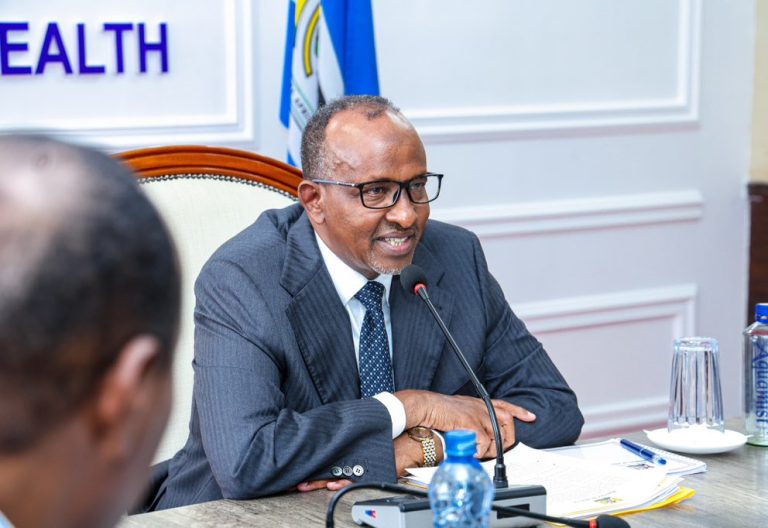Kenya among countries that have adopted pandemic agreement

The World Health Assembly (WHA) has adopted historic Pandemic Agreement to make the world more equitable and safer from future pandemics.
The agreement’s adoption follows three years of intensive negotiation launched due to gaps and inequities identified in national and global COVID-19 responses.
Kenya is among the countries that have joined the Assembly, and according to Kenya’s Health Cabinet Secretary Adan Duale, the agreement will boost collaboration to ensure a stronger, more equitable response to future pandemics.
Speaking during the WHA forum, Duale said the agreement will ensure that children are better prepared for future public health emergencies.
The resolution on the WHO Pandemic Agreement adopted by the World Health Assembly sets out steps to prepare for the accord’s implementation. It includes launching a process to draft and negotiate a Pathogen Access and Benefit Sharing system (PABS) through an Intergovernmental Working Group (IGWG).
Kenya, the CS said, calls for the rapid adoption of this treaty and the swift but precise completion of the drafting of the Pathogen Access and Benefit Sharing (PABS) annex that will see developing countries benefit from technology transfer and sharing of know-how.
According to the Agreement, pharmaceutical manufacturers participating in the PABS system will play a key role in equitable and timely access to pandemic-related health products by making available to WHO “rapid access targeting 20 percent of their real-time production of safe, quality, and effective vaccines, therapeutics, and diagnostics for the pathogen causing the pandemic emergency.”
The distribution of these products to countries will be carried out on the basis of public health risk and need, with particular attention to the needs of developing countries.
Kenya’s position on contributions
Duale said that Kenya supports the proposal to increase assessed contributions by 20 percent, noting that with the ongoing institutional, governance, and financial reforms guided by member state priorities and aimed at fortifying the responsiveness of the organization to countries’ needs, the revised budget will achieve more impact even with less funding.
“Kenya will remain steadfast in our commitment to championing people-first policies, fostering strong partnerships, and actively contributing to global health dialogues that unequivocally affirm the right to health for every individual,” the CS said.
Driven by the goal of making the world safer from and more equitable in response to future pandemics, Dr Tedros Adhanom Ghebreyesus, WHO Director-General, said that the world is safer today thanks to the leadership, collaboration, and commitment of member states to adopt the historic WHO Pandemic Agreement.
“The Agreement is a victory for public health, science, and multilateral action. It will ensure we, collectively, can better protect the world from future pandemic threats. It is also a recognition by the international community that our citizens, societies and economies must not be left vulnerable to again suffer losses like those endured during COVID-19,” Dr. Tedros added.
Dr. Teodoro Herbosa, President of this year’s World Health Assembly, who presided over the Agreement’s adoption, said as COVID was a once-in-a-lifetime emergency, the WHO Pandemic Agreement offers a once-in-a-lifetime opportunity to build on lessons learnt from that crisis and ensure people worldwide are better protected if a future pandemic emerges.
“Now that the agreement has been brought to life, we must all act with the same urgency to implement its critical elements, including systems to ensure equitable access to life-saving pandemic-related health products,” Dr Herbosa said.
The WHO Pandemic Agreement sets out the principles, approaches, and tools for better international coordination across a range of areas in order to strengthen the global health architecture for pandemic prevention, preparedness, and response. These include equitable and timely access to vaccines, therapeutics, and diagnostics.
Governments adopted the WHO Pandemic Agreement in a plenary session with approval of the Agreement by vote (124 in favour, 0 objections, and 11 abstentions in committee by member state delegations).











